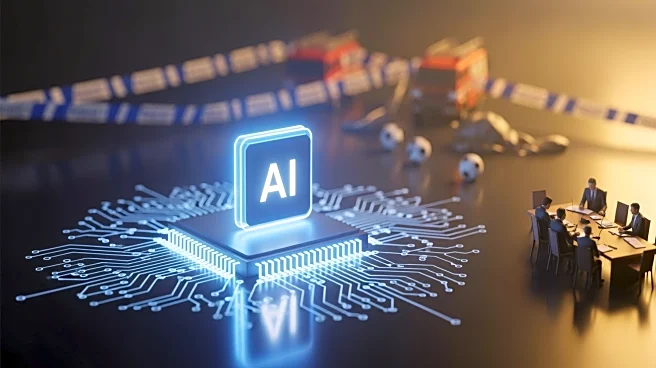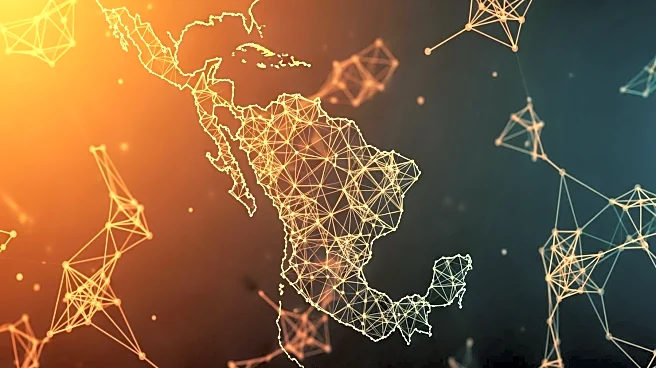What's Happening?
Major AI labs are advancing towards the development of artificial general intelligence (AGI), which could outperform humans in all cognitive tasks. This technological progress is raising concerns about
the potential displacement of human labor, particularly in white-collar jobs. The CEO of Anthropic, Dario Amodei, predicts that AI could eliminate half of all entry-level white-collar jobs by 2030. This has led to significant investments in AI infrastructure, with companies expected to spend $375 billion this year alone. The potential for AGI to create a 'permanent underclass' is being discussed, as AI could render human labor commercially useless, leading to economic and social challenges.
Why It's Important?
The development of AGI could have profound implications for the U.S. economy and labor market. If AI can perform tasks more efficiently than humans, it could lead to widespread unemployment, particularly affecting recent college graduates and entry-level positions. This shift could exacerbate economic inequality, as those who own AI technology may gain disproportionate wealth and power. The potential for AGI to disrupt traditional labor markets raises questions about the future of work and the need for policies to address these changes. Ensuring equitable distribution of AI's benefits and preventing the formation of an oligarchic society are critical challenges that policymakers must consider.
What's Next?
As AI technology continues to advance, stakeholders including government officials, businesses, and civil society groups will need to address the potential economic and social impacts. Discussions around labor-augmenting AI versus labor-replacing AI are crucial, as the former could help preserve jobs and economic stability. Institutional reforms may be necessary to ensure that the benefits of AI are shared broadly across society. The development of policies that promote equitable distribution of wealth and maintain democratic accountability will be essential in preventing the negative consequences of AGI-induced economic shifts.
Beyond the Headlines
The ethical implications of AGI development are significant, as it could lead to a society where human labor is undervalued. The historical context of automation shows that while it can lead to prosperity, it also has the potential to create economic disparities. The concept of the 'resource curse' in countries with abundant natural resources serves as a cautionary tale for the potential impact of AGI. Ensuring that AI development aligns with social and economic justice principles will be crucial in shaping a future where technology benefits all members of society.









